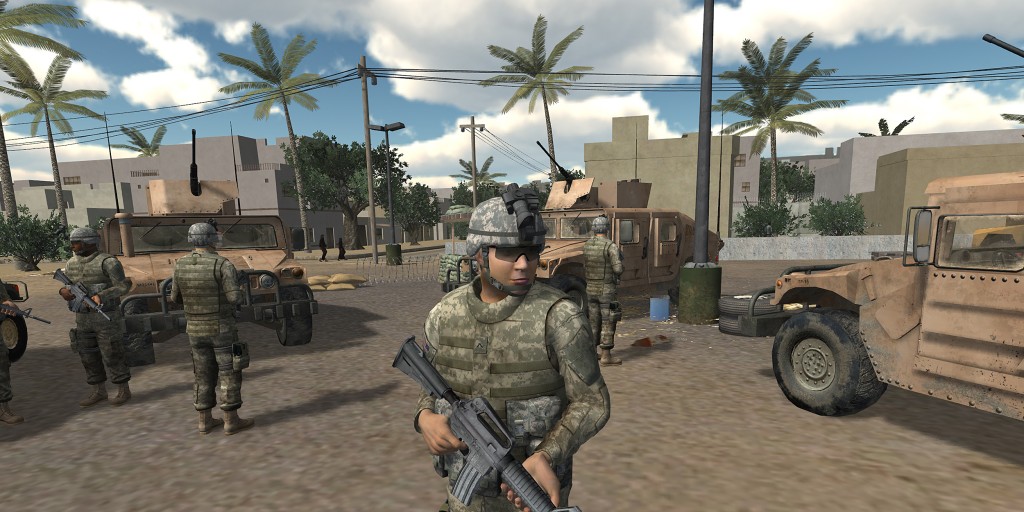
Virtual Reality Therapy: Transformative Healing for PTSD
In the realm of mental health treatment, Virtual Reality Therapy (VRT) has emerged as a groundbreaking approach, particularly in addressing Post-Traumatic Stress Disorder (PTSD). This innovative method harnesses the immersive power of virtual reality to provide a therapeutic experience that is proving to be transformative for individuals grappling with the impact of trauma.
Immersive Exposure Therapy: Rewriting Traumatic Narratives
Virtual reality therapy for PTSD often involves a form of exposure therapy. Individuals are immersed in realistic virtual environments that simulate aspects of their traumatic experiences. This controlled exposure allows them to confront and process their emotions in a safe and supportive setting. By gradually confronting and rewriting traumatic narratives, VRT helps individuals gain a sense of mastery over their memories.
Creating a Safe Therapeutic Space: The Power of Immersion
One of the strengths of virtual reality therapy lies in its ability to create a safe and controlled therapeutic space. In traditional therapy settings, revisiting traumatic events can be challenging and emotionally overwhelming. Virtual reality provides a gradual and customizable approach, allowing therapists to tailor the intensity of exposure, fostering a sense of safety for individuals undergoing treatment.
Sensorimotor Psychotherapy in Virtual Realms: A Holistic Approach
Virtual reality therapy for PTSD extends beyond cognitive processing to incorporate sensorimotor psychotherapy. This holistic approach recognizes the interconnectedness of mind and body. In virtual environments, individuals can engage in activities that promote sensorimotor integration, helping to regulate emotional responses and alleviate the physiological impact of trauma.
Enhancing Therapeutic Engagement: The Technological Advantage
The technological aspect of virtual reality adds a unique dimension to therapeutic engagement. Through the use of VR headsets and immersive environments, individuals are drawn into the therapeutic process in a way that transcends traditional talk therapy. The multisensory experience enhances engagement, making therapy more compelling and effective for those with PTSD.
Customizable and Controlled: Tailoring Therapy to Individuals
Virtual reality therapy offers a level of customization and control that is particularly beneficial for PTSD treatment. Therapists can adapt virtual scenarios to align with the specific triggers and challenges faced by each individual. This tailored approach ensures that therapy is not only effective but also sensitive to the unique experiences of each person seeking treatment.
Real-time Therapeutic Feedback: Navigating Responses to Stimuli
One of the advantages of virtual reality therapy is the ability to provide real-time feedback. Therapists can observe and assess individual responses to virtual stimuli, gaining insights into emotional reactions and areas that may require further exploration. This real-time feedback loop enhances the therapeutic process, facilitating a more nuanced understanding of an individual’s journey.
Beyond Traditional Constraints: Overcoming Accessibility Barriers
Virtual reality therapy transcends geographical and logistical barriers, making it particularly valuable for individuals facing challenges in accessing traditional forms of therapy. Whether due to location, physical limitations, or other constraints, virtual reality therapy for PTSD ensures that effective treatment is within reach for a broader spectrum of individuals.
Evolving Research and Efficacy: Validating the Approach
The efficacy of virtual reality therapy for PTSD is supported by a growing body of research. Studies indicate that this innovative approach is not only well-tolerated but also produces positive outcomes in reducing PTSD symptoms. As research continues to evolve, virtual reality therapy is becoming increasingly recognized as a valuable and evidence-based intervention.
Virtual Reality Therapy for PTSD: Exploring New Avenues of Healing
To delve deeper into the transformative potential of virtual reality therapy for PTSD, explore Virtual reality therapy for PTSD. This innovative approach is not just a technological advancement; it’s a beacon of hope for those navigating the complex journey of healing from trauma, providing a pathway to resilience and recovery in the virtual realms.
